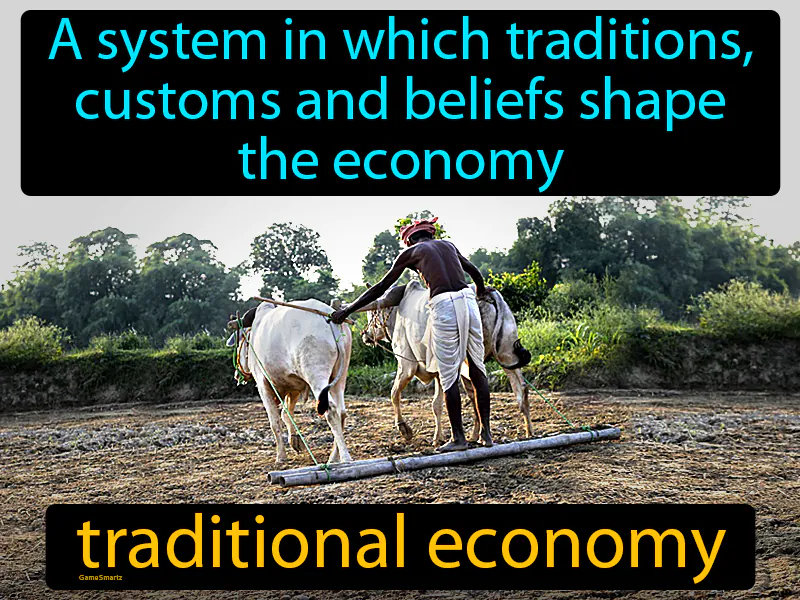Traditional Economy
Traditional Economy: Easy to understand
In the Foundations of Civilization from Prehistory to 300 BC, a traditional economy was crucial as it provided a stable and predictable way of life for early societies. It relied on customs and beliefs passed down through generations, ensuring survival by focusing on agriculture, hunting, and barter systems. This economy responded to the need for reliable food sources and resource distribution in a world without modern technology. Today, traditional economies still matter in some indigenous communities where customs guide daily activities and resource management. For example, in some Native American tribes, traditional fishing methods are practiced to maintain cultural heritage and ensure sustainable fishing, connecting past traditions with present-day life.

Practice Version

Traditional Economy: A system in which traditions, customs and beliefs shape the economy. Traditional economy. In history, a traditional economy is one where people rely on ancient methods and cultural practices to produce goods and services.